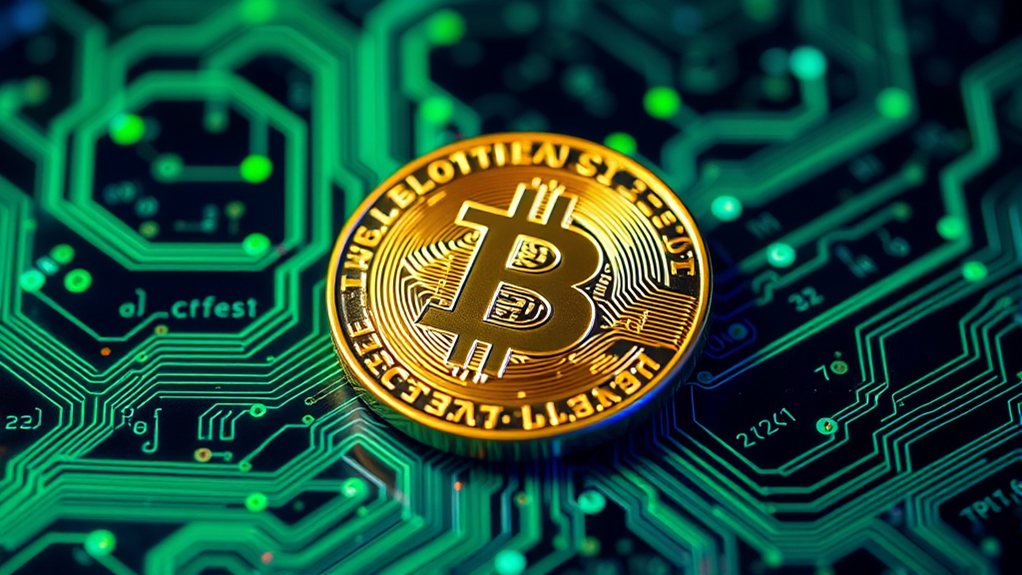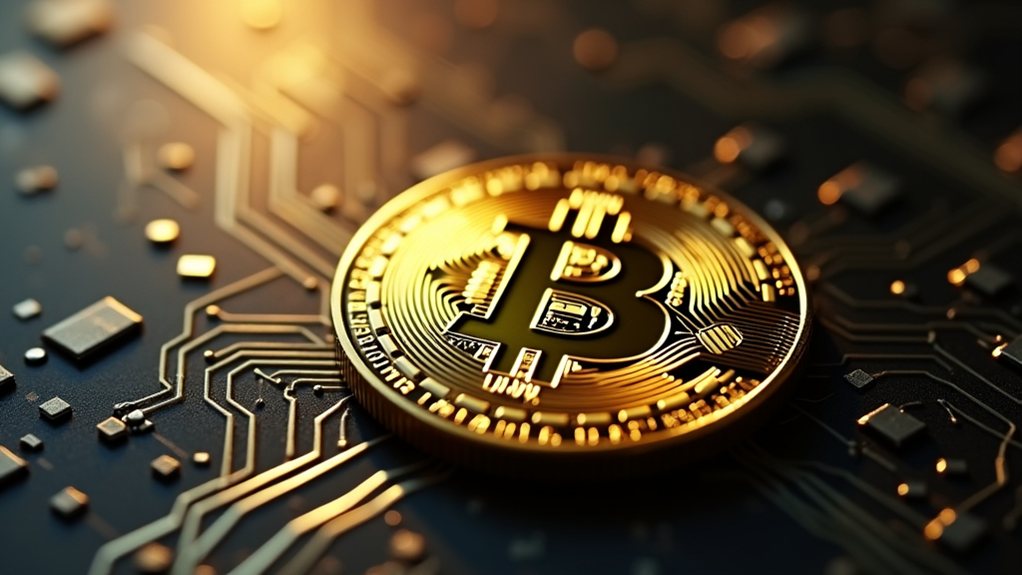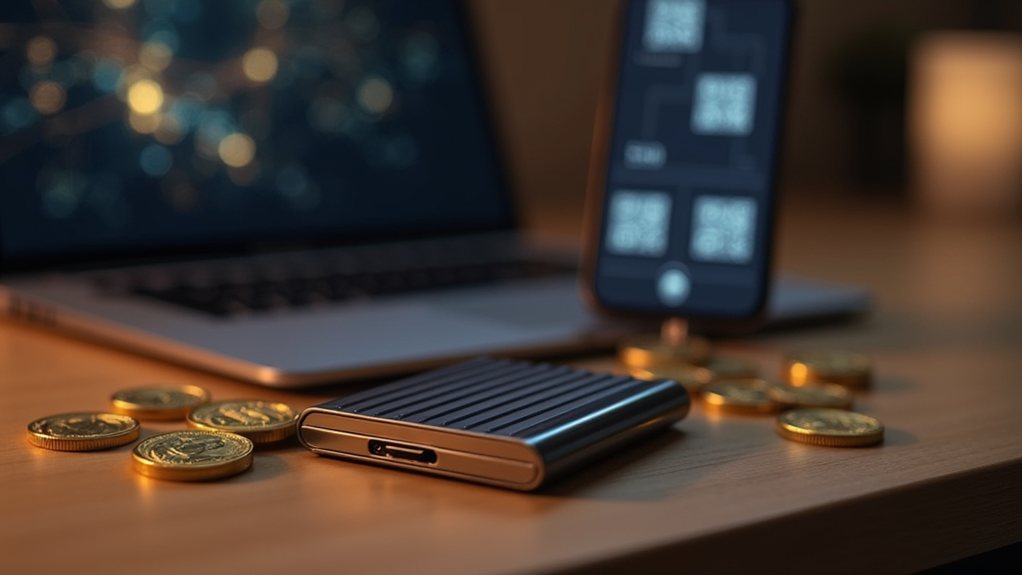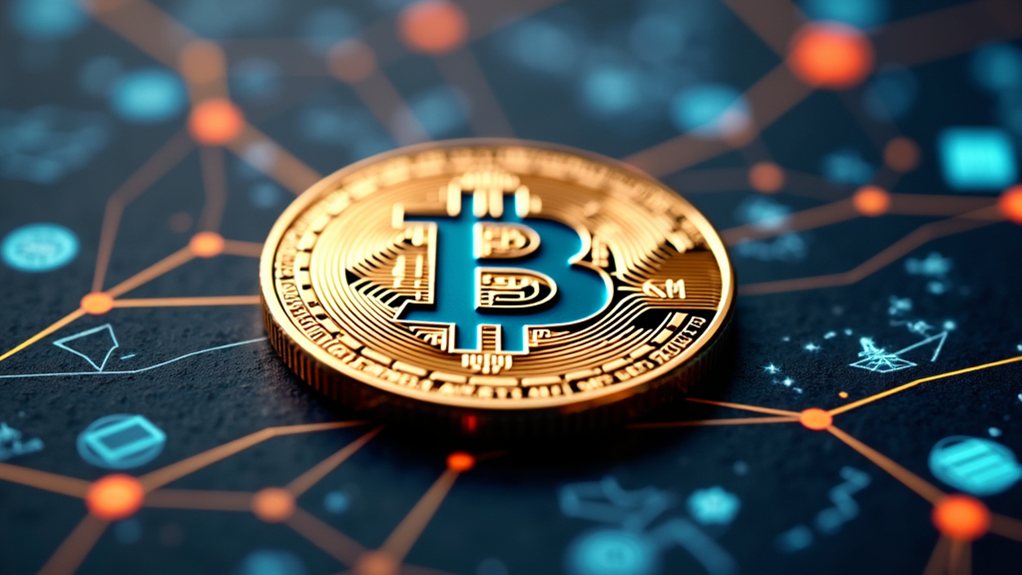Bitcoin Cash is a cryptocurrency that split from Bitcoin in 2017. It features larger block sizes (32 MB vs. Bitcoin's 1 MB), allowing for more transactions at once with lower fees. BCH ranks among the top 20 cryptocurrencies with a market value of $6.23 billion. It processes up to 200 transactions per second and supports smart contracts. The network operates without central control through independent developer groups. More details reveal its full potential.

Bitcoin Cash is a cryptocurrency that split off from Bitcoin in August 2017. It was created to solve problems with Bitcoin's ability to handle many transactions quickly. The main difference is that Bitcoin Cash allows larger blocks of transaction data—32 megabytes compared to Bitcoin's 1 megabyte. This means Bitcoin Cash can process more transactions at once.
Born from Bitcoin in 2017, Bitcoin Cash offers 32MB blocks instead of 1MB, enabling faster processing of more transactions.
When Bitcoin Cash launched, it was worth about $900. It reached its highest price of $4,355.62 in December 2017. As of February 2025, its market value is $6.23 billion, making it one of the top 20 cryptocurrencies. Traders know it by the symbol BCH on exchanges.
Like Bitcoin, Bitcoin Cash uses a system called Proof-of-Work to verify transactions. It also uses the SHA-256 hashing algorithm and creates new blocks every 10 minutes. There will only ever be 21 million Bitcoin Cash coins, just like Bitcoin. The network adjusts how difficult it is to mine new coins with something called the Adjustable Difficulty Algorithm.
Bitcoin Cash aims to be digital money for everyday use. It's designed for buying things, sending money across borders, and making very small payments online. The fees for using Bitcoin Cash are typically lower than Bitcoin's fees, and transactions usually complete faster. Bitcoin Cash can handle up to 200 transactions per second, making it significantly more efficient for day-to-day payments than Bitcoin. The hard fork occurred precisely at block 478558 of the original Bitcoin blockchain, marking its official beginning. Some people also hold it as a store of value, similar to gold or other investments.
Unlike many cryptocurrencies, Bitcoin Cash doesn't have one central team or foundation in charge. Several independent groups work on its development. The code is open-source, meaning anyone can look at it or suggest changes. The community actively participates in making decisions about updates to the system.
Bitcoin Cash hasn't been without problems. In November 2018, disagreements in the community led to another split, creating Bitcoin SV as a separate cryptocurrency. Bitcoin Cash also has a lower hash rate than Bitcoin, which means less computing power secures its network. Some critics say its mining is too centralized, with a few large groups having too much control.
Despite facing challenges in getting widely adopted as a payment method, Bitcoin Cash continues to develop. Unlike forex markets that operate only weekdays, Bitcoin Cash operates on decentralized blockchain with 24/7 trading availability. It now supports features beyond simple money transfers, including smart contracts and tokens. These additions allow for more complex financial applications to be built using the Bitcoin Cash network.
For those interested in cryptocurrencies that focus on payments, Bitcoin Cash represents an alternative to Bitcoin with its emphasis on faster and cheaper transactions for everyday use.
Frequently Asked Questions
How Does Bitcoin Cash Differ From Bitcoin?
Bitcoin Cash differs from Bitcoin in several key ways.
It has larger blocks (32MB vs 1MB), allowing 116 transactions per second compared to Bitcoin's 7.
BCH transactions confirm faster with fees under $0.01, while Bitcoin fees can exceed $4.
Bitcoin Cash removed the Replace-by-Fee feature and uses the Simple Ledger Protocol.
It's designed for everyday payments, while Bitcoin functions more as digital gold.
What Are the Transaction Fees for Bitcoin Cash?
Bitcoin Cash transaction fees are remarkably low, typically less than $0.01 per transaction, with the median fee around $0.0013 as of February 2025.
These fees are substantially lower than Bitcoin's $1-$5 average. Fees are calculated based on transaction size in bytes, with larger transactions requiring higher fees.
The network's 32MB block size helps maintain low fees even during periods of high congestion, making it suitable for everyday purchases.
Where Can I Buy or Trade Bitcoin Cash?
Bitcoin Cash can be purchased through major exchanges like Coinbase, Binance, and Kraken.
For peer-to-peer trading, platforms such as LocalBitcoins and Paxful are available.
Cryptocurrency ATMs from companies like General Bytes and CoinFlip support Bitcoin Cash transactions.
Brokerage services including Square's Cash App and eToro also offer Bitcoin Cash trading.
These platforms vary in fees, verification requirements, and available payment methods.
Is Bitcoin Cash a Good Investment?
Bitcoin Cash's investment potential varies based on market factors.
It offers lower fees and faster transactions than Bitcoin, but has a smaller network. BCH trades at $316.55 as of February 2025, well below its $4,355 all-time high.
Analysts predict prices between $178-$450 in 2025.
Like all cryptocurrencies, BCH carries significant risks including market volatility, regulatory concerns, and competition from other digital assets.
How Secure Is the Bitcoin Cash Network?
Bitcoin Cash's network security relies on proof-of-work, similar to Bitcoin. It hasn't experienced major breaches since its 2017 launch.
However, it has less mining power than Bitcoin, making it potentially more vulnerable. The network maintains about 1,000-1,500 nodes globally, fewer than Bitcoin.
Its privacy features include optional CashShuffle and CashFusion protocols, though most transactions remain traceable.
Zero-confirmation transactions carry higher risk due to faster block times.














